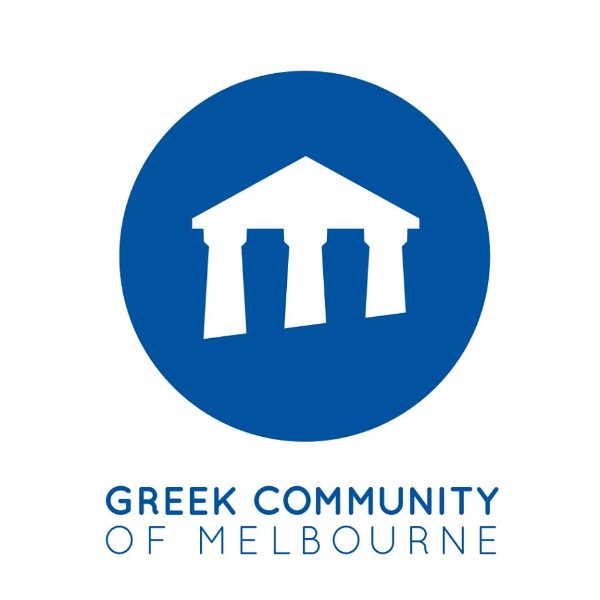DIASPORA RELATIONSHIPS – NOW IS THE TIME TO ACT
Mr Papastergiadis as President of the Greek Community of Melbourne (“GCM”) in his address at the 5th Delphi Economic Forum stated that “now is the time to move forward in developing the relationship between Greece and Australia. In Australia, the politicians and policy makers know that the Greek Diaspora is good for business,” and “this is even more relevant given Australia has one of the world’s largest economies”.
“In Australia and particularly in Melbourne, the Greek community is considered amongst the strongest if not the strongest ethnic group. It stimulates trade, provides links to foreign markets and expanded services for the community. The Government provides and funds festivals and numerous cultural and educational programs.”
Mr Papastergiadis stated that given the excellent reputation the Greek-Australian community has with the Australian Government, there has never been a better time to develop the relationship between Greece and Australia.
He mentioned some recent examples from his organisation the Greek Community of Melbourne (“GCM”) which have been supported by the Australian Government:
- the initiation and ratification of the tourist working visa agreement between Greece and Australia.
- the funding by the Government of the trade commission for the Thessaloniki Trade Fair 2020;
- investment by the Government. $600,000 for the Antipodes Street Festival;
- the development of the 15 storey cultural centre in Melbourne ($4m Government funding);
- the funding by the Government of the construction of the replicas of the Parthenon marble around the cultural 15 storey centre in Melbourne.
- the funding of another cultural centre adjacent to the 15 storey cultural centre by the Government ($5m);
- the funding of the Hellenic Chair of Global Diasporas and Melbourne University by the Government ($5m in total).”
Mr Papastergiadis was adamant that the one key issue that will help to bridge the diaspora gap is the vote of the Diaspora.
Mr Papastergiadis referred to the meeting he had in July 2019 with Prime Minister Mitsotakis where he discussed the issue of a postal vote from Diaspora.
“The Prime Minister assured me that he would achieve an outcome for voting for Greeks abroad by the end of the year. He kept his word,” he said.
“Unfortunately, to achieve his pledge, he needed the support of other parties as parliament requires 200 votes for the bill to be passed. The inter-party consensus was achieved and the bill was passed in October 2019.
“I also had a number of discussions with Interior Affairs’ Minister Theodorikakos who admitted to me that the deal had many weaknesses in that it is the product of compromises involving all political parties. He told me that common ground was needed to allow Greeks abroad to vote in their place of residence. I believe this is a positive development that Greek expatriates are afforded their democratic right to participate in elections.”
However, Mr Papastergiadis argued that there are a number of deficiencies in the current proposal that are discriminatory and unfair.
“It does not allow voting rights to those who have not lived in Greece for more than 35 years unless they can prove that they visited Greece for two years as a student, conscript or for work… Another problem is limiting the vote to consulates in an area where technology has made electronic voting so easy,” he said.
“Hopefully, over the next few years, there will be changes to these provisions so as the bill for the Diaspora voting rights is more than a gesture but is on par with the rights citizens have in the rest of the developed world.”
Discussing the importance of the right to vote for Greeks living abroad, Mr Papastergiadis emphasized that:
“A vote means more than just filling out a ballot. It means reflecting and engaging on all issues that relate to your country. It brings you closer to your country. By allowing the vote, Greece will send a message to its citizens that everyone counts. That we are all one. Hopefully this will lead to more engagement both culturally and economically.”
Answering to a question during the Delphi Forum as to what advice he has for the Greek government and Greece, he said:
“My first point is that Greece must open itself to the rest of the world and embrace new technologies and social and cultural constructs. Secondly, it should adopt a pluralistic and multicultural view of the world. This is one of the key learnings and benefits we have gain by living in the Diaspora.”
“I think opening up Greece to a progressive view and an open view of the world it is a good starting point. At the same time, it requires significant changes to its bureaucratic structures so as to enable it to make decisions effectively and efficiently. Time and time again we put proposals to the Greek Government, which they endorsed but they did not acted upon. I encourage Greece to open its mind to the broad multicultural world we are living in and embrace a pluralistic, open view of the world.”
Bill Papastergiadis identified two key initiatives proposed by him that can deliver immediate benefits to Greece.
The first is the establishment of an office Enterprise Greece in Melbourne.
“In a meeting I had with former finance Minister Papadimtriou, it was agreed that an office would be setup at the 15 storey Greek Community of Melbourne Centre and this was announced in Greek’s Parliament. Our organisation would provide office space and it would fully furnish it with no cost to the Greek Government. To date, the Enterprise Greece Office has still not been established. This is particularly important given that Australia has the world’s fourth largest pension market valued at 1.9 trillion and has also experienced the highest growth rate of pension fund assets in the world.”
I also offered to house an office for the Greek Tourist Ministry in our 15 story centre again with no cost for leasing and it being fully fitted.
This offer despite being acknowledged and accepted by a number of Greek Tourist Ministers has still not been implemented.
The relevance of this offer stems from statistics from the Greek Tourist Ministry which identifies that Australians spend the most per capita globally as tourists in Greece and stay the longest period of time.
Despite this evidence, Greece still does not have one tourist office in Australian, whilst its competitor countries, such as, Turkey, have numerous offices.
During the Delphi discussion Mr Papastergiadis noted that diaspora is a shifting non homogenous body.
According to Mr Papastergiadis, it was predicted that the Greek Diaspora in Australia would shrink numerically and culturally as a result of the termination of Greek immigration post 1974. However, following the economic crisis and collapse of the Greek economy, there has been a huge repatriation of the Greek-Australian Diaspora back to Australia. It is estimated by Dr A. Tamis, that there are approximately 80,000 Greek-Australian citizens that returned to Australia and 10,000 Greek settlers on various visas.
“Dr Tamis also written in various occasions, that the majority of these people were members of the middle class, comprising professionals, business people, scientists and artists. 53% were graduates of tertiary education. This is in stark contrast to those who migrated between 1952 and 1977 whereby 86% were either illiterate or primary school leavers,” he said.
Mr Papastergiadis stated that there has been a work evolution and skills acquisition with the successive generations of Greek-Australians in Australia. In the 1950s Greek immigrants were involved mainly in manufacturing industries. However by the 1990s, their children became well educated professionals, tertiary graduates, artists who worked their way into mainstream society and acclaimed positions of influence.
“The Diaspora in Australia is not homogenous, Melbourne is different to Sydney – for example – those born in Greece differ from their children and then they differ from those who have married into other ethnicity,” he said.
“There is no homogenous national identity. Equally, there has been a change of view about the Greek homeland. That yearning for the return to Greece is no longer related to a melancholy story of loss and decay. Hence, the idea of belonging has changed over a period of time with the recognition of cultural differences. Hence now is the time to invest in identifying who we are. That is why we have set up a Hellenic Diaspora Chair at Melbourne University to fund this research. The Greek Community of Melbourne is investing to bring the diaspora globally together.”
___________________________________________________
Information: +61 3 9662 2722 or by email : info@greekcommunity.com.au






